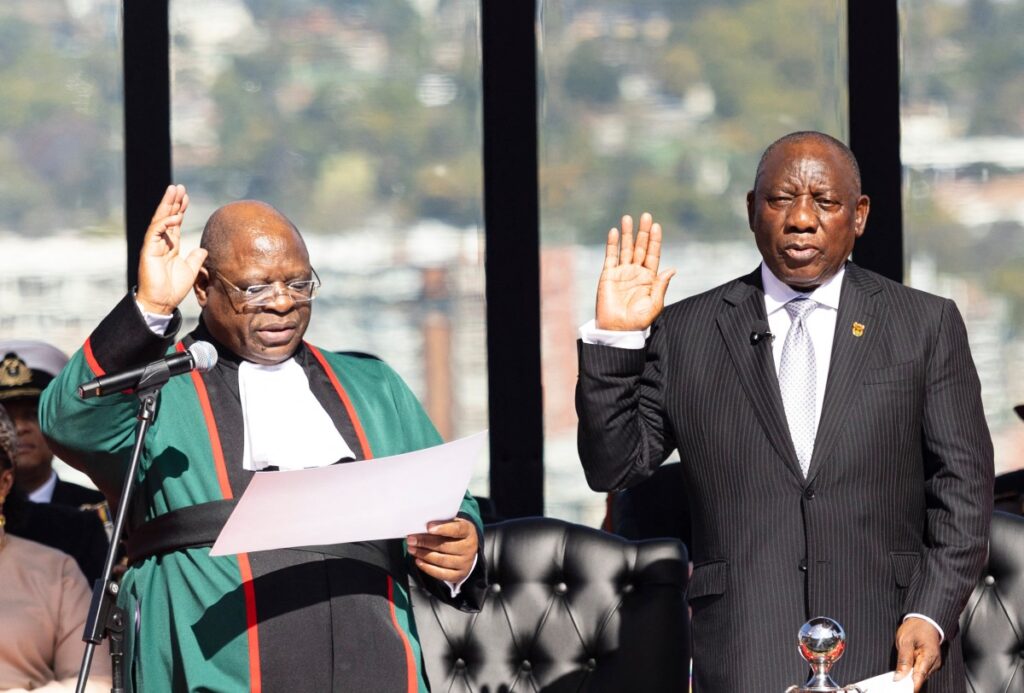ANC leader now set to appoint cabinet featuring his weakened party and coalition partners in unity government.
Cyril Ramaphosa was sworn in for a second term as South Africa’s president, hailing his broad coalition government as the “beginning of a new era”.
Ramaphosa, whose inauguration took place on Wednesday in Pretoria, now faces the challenge of appointing a cabinet featuring his weakened African National Congress (ANC) party and coalition partners.
Lawmakers voted overwhelmingly to re-elect the 71-year-old last week, after elections in May that produced no outright winner, forcing the ANC to strike deals with five other parties, including the centre-right Democratic Alliance (DA), to form a government of national unity.
“The formation of a government of national unity is a moment of profound significance. It is the beginning of a new era,” Ramaphosa said at his inauguration ceremony, led by Chief Justice Raymond Zondo.
The ANC, which came to power under Nelson Mandela’s leadership in 1994 after waging a decades-long battle against apartheid, lost its majority for the first time in 30 years of democracy, gaining just 40 percent of the vote.
Its alliance with the DA, the largest opposition party with 22 percent of the vote, has been described by some as a new chapter in the country’s history.
While investors have welcomed the inclusion of the DA, focused on structural reforms and prudent fiscal policies, analysts predict sharp ideological divisions between the two could create instability.
Just before the election, Ramaphosa signed into law a National Health Insurance bill that the DA says could collapse a creaking health system. It was unclear what would happen to that law under the new government.
The DA advocates scrapping the ANC’s flagship Black economic empowerment programme, saying it has not worked – a highly contentious topic in a nation grappling with huge inequalities, some inherited from apartheid.
Ramaphosa will now be negotiating the makeup of his new government with members of the new alliance, which also includes the Zulu nationalist Inkatha Freedom Party, the anti-immigration Patriotic Alliance and the small centre-left GOOD party.
“The president does not want the country to go through a prolonged period of uncertainty”, and consultations will continue even late on Wednesday, his spokesman Vincent Magwenya told state broadcaster SABC.
Numerous heads of state, including Nigerian President Bola Ahmed Tinubu, Angola’s Joao Lourenco, Republic of the Congo’s Denis Sassou Nguesso and Eswatini’s leader King Mswati III attended the inauguration. – Al Jazeera
